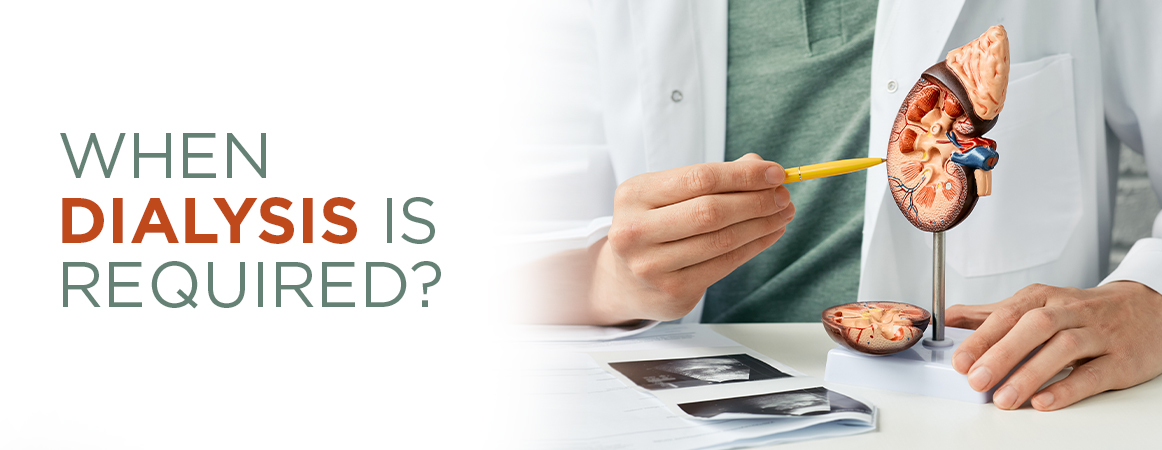
Dialysis is a medical treatment that is used to remove waste and excess fluids from the body. It is typically used when the kidneys are no longer able to perform these functions adequately, a condition known as kidney failure. Dialysis can be performed using two different methods: Hemodialysis and Peritoneal Dialysis.
There are several reasons why someone might require dialysis, but the most common cause is chronic kidney disease. Long-term chronic renal disease causes the kidneys to progressively lose their capacity for normal function. It is often the result of other underlying conditions such as diabetes or high blood pressure, which can damage the kidneys over time.
Other causes of kidney failure that may require dialysis include:
This is a sudden loss of kidney function that can be caused by a variety of factors such as dehydration, severe infections, or certain medications.
This is a genetic disorder that causes multiple cysts (fluid-filled sacs) to develop in the kidneys, leading to kidney damage.
This is a group of conditions that cause inflammation in the tiny filters within the kidneys (called glomeruli). This inflammation can lead to scarring and eventually kidney failure.
This is a group of symptoms that occur when the kidneys are not able to filter waste and excess fluids effectively. It can be caused by a variety of underlying conditions, including kidney disease and certain medications.
When it becomes clear that someone will need dialysis, the type of dialysis that is best for them will depend on a variety of factors, including their overall health, lifestyle, and personal preferences.
Dialysis is a medical procedure that performs the vital functions of the kidneys, which are to filter waste and toxins from the blood. It is a life-saving treatment for people with renal (kidney) failure. Dialysis is necessary when the kidneys become so damaged or diseased that they can no longer function properly.
Kidney failure can be caused by a variety of conditions, such as diabetes, high blood pressure, glomerulonephritis, or polycystic kidney disease. In some cases, the cause is unknown. When the kidneys cannot filter waste from the blood, dialysis is required.
The two main types of dialysis are hemodialysis and peritoneal dialysis. Hemodialysis is performed by a machine that filters the blood outside the body. Blood is removed from the body, passed through a filter, and then returned to the body. Peritoneal dialysis is performed by putting a special solution into the abdomen and allowing it to absorb waste products from the blood.
Dialysis can help to prolong life, improve quality of life, and reduce the risk of complications. It can also help to reduce symptoms such as fatigue, weakness, and nausea. Dialysis can also help to control blood pressure, and reduce the risk of stroke and heart attack.
Although dialysis is an important treatment for people with kidney failure, it does carry some risks. These include a risk of infection, low blood pressure, and fluid overload. Other risks include risk of anemia, bone disease, and chronic complications such as heart disease.
Dialysis is closely monitored to ensure that it is working properly and that the patient is responding to the treatment. Blood tests, such as creatinine and potassium levels, are performed to make sure that the dialysis is working properly.
The cost of dialysis can vary depending on the type of treatment and the frequency of treatment. Generally, hemodialysis is more expensive than peritoneal dialysis.
Contact Memon Medical Institute Hospital to know more about the dialysis charges in Karachi.
Dialysis is a life-saving treatment for people with renal failure. Dialysis can help to prolong life, improve quality of life, and reduce the risk of complications. However, there are risks associated with dialysis and it can be expensive. Memon Medical Institute Hospital is a low-cost and free dialysis center in Karachi.
Acidity, also known as acid reflux or heartburn, is a common digestive disorder. It happens…
Tonsillitis, an inflammation of the tonsils, can range from a minor nuisance to a serious…
Bawaseer, also known as hemorrhoids, is a medical condition characterized by swollen or inflamed veins…
Millions of individuals worldwide suffer from skin allergies, sometimes referred to as allergic dermatitis. From…
Migraine is a neurological disorder characterized by recurrent, debilitating headaches often accompanied by other symptoms…
Millions of people worldwide suffer from asthma, a chronic respiratory disease that is characterized by…